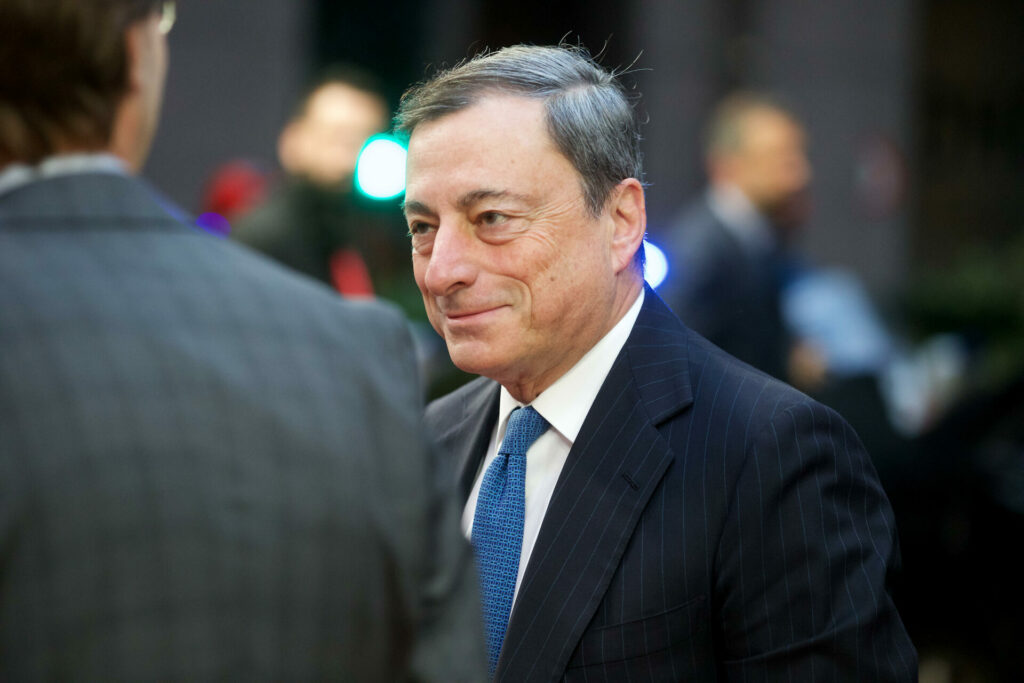Former Italian Prime Minister and European Central Bank President Mario Draghi says Europe must enact "radical change" in its competitive and industrial policies if it is to move out of "the world of yesterday".
Speaking at a conference organised by the Belgian Presidency of the Council of the European Union on Tuesday, Draghi warned that "we need an EU that is fit for today’s and tomorrow’s world", as leadership struggles gather pace and global actors increasingly fail to play by the rules.
Other regions are "actively devising policies to enhance their competitive position", often at the expense of Europe, he outlined. Chinese expansion and US protectionism pose significant threats to European stability, and for this reason, the EU must arrive at an Industrial Deal that ensures both competitiveness and geopolitical independence. This must be balanced with the bloc's climate targets, which continue to be a priority but must not damage the EU's supply chain.
The economist is currently preparing a report on the subject for the European Commission, due to be published in June. He says the document will propose "radical change, because that is what is needed."
'Three common threads'
This radical change relates primarily to economy, decarbonisation, defence and technology. To achieve such a transformation, Draghi has noted "three common threads" to work on throughout European policy.
The first concerns scale. Fragmentation is holding Europe back from taking advantage of its geographic spread, which is most hampering in the areas of defence and telecommunications.
Secondly, European countries need to improve coordination regarding the provision of public goods such as energy. He added that private investment would likely constitute the bulk of the momentum.
Finally, Draghi emphasised the importance of securing resources.
"If we are to carry out our climate ambitions without increasing our dependence on countries on whom we can no longer rely, we need a comprehensive strategy covering all stages of the critical mineral supply chain," he said.
Reception
Draghi's speech has elicited praise and surprise in some circles. Political economist Benjamin Brau, posting on X (formerly Twitter) referred to the economist's comments about Europe's outdated decision-making model as an "incredible, brutal self-indictment" (Draghi led the ECB from 2011 to 2019, during the eurozone crisis).
Similarly, Philipp Heimberger, a researcher at the Vienna Institute for International Economic Studies posted that "Draghi [...] says that the eurozone crisis "competitiveness strategy" (austerity and downward wage pressure) was bad as it reduced domestic demand, deepened the crisis and undermined the social model."
Incredible, brutal self-indictment by Draghi (although Trichet takes the biggest hit). Speech in Brussels yesterday. I’ve never seen anything like it from anywhere near the top of the ECB. And we just spent five years digging around. Extraordinary. https://t.co/EzHByJAXVH https://t.co/ikI8J92WZJ pic.twitter.com/Oo39XM00Km
— Benjamin Braun (@BJMbraun) April 17, 2024
Industry calls for reinforced competitiveness have been growing in Europe for some time. In February, around 70 CEOs signed the 'Antwerp Declaration', a document designed to safeguard European industry in the face of climate targets which signatories view as obstacles to economic growth.
Belgium has listed industrial competitiveness as a key priority during its rotating Presidency of the Council of the EU. Prime Minister Alexander De Croo (Open VLD) outlined these goals during an address to the European Parliament in January.

